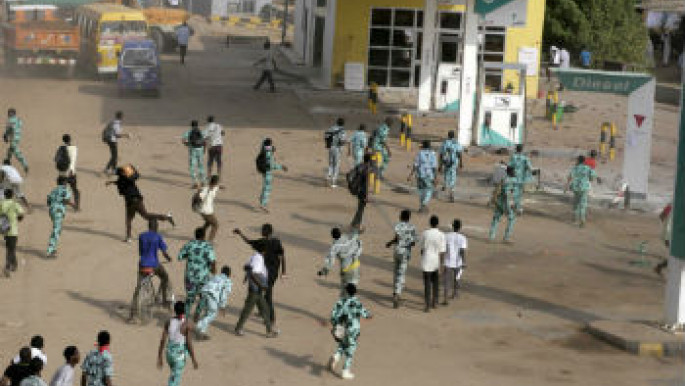Clashes erupt in Sudanese city of Sennar as bread prices soar
Bread prices almost doubled on Friday across Sudan after flour manufacturers raised prices amid dwindling supply of wheat following a government decision to stop importing the grain and allow private companies to do so.
The government has also lifted subsidies on bread as part of its 2018 budget.
"Citizens, demand your rights," shouted university students in the central Sudanese town of Sennar as dozens of residents joined them in a sporadic march against the rise in bread prices, witnesses said.
Police fired tear gas to break the 400-strong protest while shopkeepers closed their shops in the town's main market, witnesses and residents from Sennar told AFP.
"The police fired tear gas at protesters. I had to close my shop as demonstrators approached the market," a shopkeeper said on condition of anonymity.
Pictures and videos of protesters chanting anti-government slogans and burning tyres in the streets were uploaded on several social media websites.
Flour manufacturers have raised the price of a 50-kilo (110 pounds) sack of wheat flour from 167 to 450 Sudanese pounds ($65, 54 euros), Mohamed al-Saeed, a member of a union, told AFP.
That sent bread prices soaring and in response leading opposition groups have called for anti-government protests across the country.
"The Umma Party calls on all its members and Sudanese citizens to protest peacefully against the rise in bread prices," the main opposition party said in a statement.
"The only way to solve this problem is to overthrow the regime," it added.
The opposition Communist Party and the Sudanese Congress Party also called for anti-government protests.
 |
|
| Similar protests erupted over fuel prices in 2013 and were brutally crushed by security forces [Getty] |
"The only way to defeat this regime is to go in the streets and demonstrate to get back the dignity of Sudanese people and their freedoms," the Communist Party said.
"People have to protest against these economic policies."
The Sudanese government has been implementing a series of unpopular economic reforms as recommended by the International Monetary Fund, aimed at recovering the weak economy.
The Sudanese economy has been flagging ever since the secession of the south in 2011, in which 75 percent of the country's oil reserves were located. Oil revenue made up over half of the country's revenue and 90 percent of its exports.
Sudan had witnessed sporadic protests in late 2016 after a government decision to cut fuel subsidies.
The authorities had cracked down on those protests in an attempt to prevent a repeat of the deadly unrest that followed a similar round of subsidy cuts in 2013.
Dozens of people were killed in 2013 protests when security forces crushed large street demonstrations, drawing international condemnation.





 Follow the Middle East's top stories in English at The New Arab on Google News
Follow the Middle East's top stories in English at The New Arab on Google News
![Israeli forces ordered bombed Gaza's Jabalia, ordering residents to leave [Getty]](/sites/default/files/styles/image_330x185/public/2176418030.jpeg?h=a5f2f23a&itok=_YGZaP1z)

